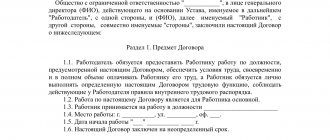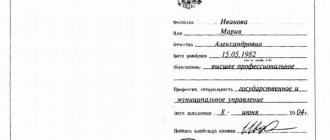Labor relations in the Russian Federation are regulated by a very extensive system of regulations.
The following large groups can be included:
- Regulatory and legal acts that are regulated by the Supreme Law of the country, the Constitutions of the constituent entities, the Labor Code of Russia, as well as the codes of individual constituent entities of the country.
- By-laws, such as Presidential Decrees and Government Decrees.
- Legislative acts of ministries and departments of the Russian Federation.
- Local legislative acts of local governments and municipalities.
- Local acts of organizations.
Federal level
Regulatory acts regulating labor relations at this level have their authority throughout Russia. Such acts are international treaties . So, provided that the provisions of the law contradict an international treaty, then in this particular case the treaty will be applied.
The Constitution, which is the main law for the population of the Russian Federation, also contains rules on labor relations. To regulate relations in the labor sphere in more detail, the Labor Code of the Russian Federation was adopted . Provisions on labor relations enshrined in other federal laws should never conflict with the norms of the Labor Code of the Russian Federation.
Also at this level, labor relations in the Russian Federation are regulated by Presidential decrees and Government Resolutions. Bodies exercising executive power at the federal level, when adopting by-laws and regulations, can also regulate labor relations in the Russian Federation .
Basic documents regulating labor relations in the Russian Federation
The main document, among other legal acts that establish the basic provisions of constitutional law, is the Constitution of the Russian Federation, which establishes the fundamental legal norms governing the life of society.
The Constitution is the Basic Law of any state, expressing the will of the ruling class or the entire society and establishing the foundations of the social and state system, the rights and freedoms of man and citizen. It outlines the range of functions of the state and establishes the foundations of its relations with man and society. The term “constitution” (from Latin - establishment) was used in ancient Rome to designate one of the types of legal acts of the emperor (together with decrees, edicts, etc.). In the era of feudalism, along with this term, the wording “basic law” began to be used, which is now used in Russia as a synonym for the word “constitution”.
In accordance with the Constitution of the Russian Federation, labor protection and health of people (Article 7), recognition and protection of private, state, municipal and other forms of property (Article 8) are among the fundamentals of the constitutional system.
According to Article 37 of the Constitution of the Russian Federation, the most important rights and freedoms of man and citizen are the right of everyone to freely dispose of their ability to work, to choose their type of activity and profession, as well as the right of everyone to work in conditions that meet safety and hygiene requirements, and to be protected from unemployment. These provisions of the Constitution of the Russian Federation comply with the requirements of the Universal Declaration of Human Rights (Article 23), approved and proclaimed by the UN General Assembly (1948), a number of other international legal acts in the field of labor, as well as the Declaration of Rights and Freedoms of Man and Citizen (Article 23) adopted by the Supreme Soviet of the RSFSR on November 22, 1991.
In relation to the parties to the employment contract (employee and employer), the above constitutional provisions are developed in acts of labor legislation. The most significant of them is the Labor Code of the Russian Federation (adopted on December 30, 2001), on the basis of which all labor relations in our country are now built.
The provisions of the old Labor Code, which was in force for 30 years, were mainly focused on a planned economy in which the state was the main employer, and numerous amendments made to it could not take into account all the changes that have occurred in the Russian economy in recent years. Therefore, the Labor Code (abbreviated as Labor Code), while retaining a significant number of provisions contained in the previously in force Labor Code, at the same time incorporated all new and partly improved provisions of labor laws, including the Law of the Russian Federation “On Collective Bargains and Agreements”.
One of the innovations of the Labor Code is social partnership in the sphere of labor, to which Section II of the code is devoted. Social partnership is a system of relationships between employees (employee representatives - trade unions), employers (employer representatives - associations) and state authorities or local governments, aimed at ensuring coordination of the interests of employees and employers on the regulation of labor and other relations directly related to them ( so-called tripartism as a principle of the ILO).
Let us note that similar forms of interaction between employees and employers existed in the previous Code, but the new Labor Code united them into a social partnership, defining its basic principles and bodies of social partnership, and also established the responsibilities of the parties.
The social partnership system includes five levels (Article 26
TK):
— the federal level, which establishes the basis for regulating relations in the sphere of labor in the Russian Federation as a result of the conclusion of the General Agreement;
— regional level, establishing such foundations in the subject of the federation (regional agreement);
- industry level, establishing such bases in industries (industry tariff agreement);
- territorial level, establishing such foundations in the municipality (territorial agreement);
- the level of the enterprise (organization), establishing specific mutual obligations in the field of labor between employees and employers as a result of the conclusion of a collective agreement.
The purpose of concluding both the above-mentioned agreements and collective agreements is to establish such contractual regulation of social and labor relations (while coordinating the interests of the parties) so that it is higher in level than provided for by law. For employees of enterprises of all forms of ownership, the most significant document is, of course, the collective agreement, in the development and discussion of which they are directly involved.
A collective agreement is a legal act regulating social and labor relations at an enterprise (organization) and concluded by employees with employers represented by their representatives (Article 40 of the Labor Code). This legal concept briefly identifies the parties and content of a collective agreement. This is always a two-way act. A collective agreement can be concluded both in the organization as a whole and in its branches. Currently, the role of the collective agreement as a local source of labor law, taking into account the specific specifics of a given production, is increasingly increasing.
The significance of a collective agreement is that this legal act regulates the working and living conditions of workers with the active participation of the workers themselves. Consequently, it improves against legislation these conditions and develops industrial democracy. Nowadays, the regulatory role of the collective agreement has increased, and its local rules of law are expanding. At the same time, it is the most practically significant form of social partnership. This is the national economic and production significance of this agreement.
All of the above applies to collective forms of regulating social and labor relations between the employer and the team of people already working at a given enterprise. But in market conditions, there is a problem of the relationship between the employer and the employee who is just being hired and cannot count on the support of the workforce in the process of discussing and concluding an individual employment agreement (contract).
In these conditions, of all forms of hiring workers, an individual employment contract should be recognized as the best form, because It is he who most of all meets the needs of market labor relations based on the hired nature of labor. Art. 56 of the Labor Code of the Russian Federation defines an employment contract as an agreement between an employer and an employee, according to which the employer undertakes to provide the employee with work for a specified labor function, provide working conditions provided for by this Code, pay wages on time and in full, and the employee undertakes to personally perform certain this agreement, the labor function and comply with the internal labor regulations in force in the organization.
Employment contracts should be distinguished from another form of hiring workers - civil contracts, which include a contract agreement, an agency agreement, an author's agreement, an agreement on the performance of research and development work. Both contracts have common features: they involve labor, are based on contractual principles, and are of a paid nature. However, there are also significant differences between them, which determine their different industry affiliations.
What are these differences? Firstly, the subject and main content of labor relations is the labor process, living labor, while the subject of relations for household contracts, assignments, and literary commissions is materialized labor, the product of labor. Secondly, according to the labor relationship, the employee undertakes to perform work of a certain type (in a certain specialty, qualification, position), while in the specified civil relations, work is associated with the performance of an individual specific task. Thirdly, labor relations presuppose the inclusion of an employee in the personnel of the organization’s labor collective, where he is obliged to perform a measure of work, observe working hours, and obey the existing internal labor regulations. The fulfillment of work tasks under the above civil law contracts does not provide for all these attributes, in other words, the citizen performs the work task at his own discretion and at his own risk.
State supervision and control over compliance with labor legislation should be carried out by federal labor inspection bodies. In addition, trade unions also have the right to monitor employers' compliance with labor laws.
It should be noted that the employees of an enterprise, if they are united in trade unions, become a force to which employers have to listen. The trade union organization of an enterprise can demand from them an increase in wages, an increase in the duration of paid vacations, payment for health insurance, etc., and in the event of an unfair refusal to fulfill these demands, call on the staff to go on strike, which, by the way, is not prohibited by modern labor legislation. Therefore, employers unwittingly have to take into account the opinion of trade unions. This is why business owners of newly created or acquired enterprises are so opposed to the emergence of trade union cells in them. But not only them.
In the new Labor Code, the rights of trade unions to support and protect employees are also significantly reduced in favor of employer-owners, in particular:
— during the reorganization and liquidation of an organization, the opinion of the trade union is not taken into account. In accordance with Art. 82 of the Labor Code, when dismissing employees for the specified reasons, the employer only informs the trade union about this in writing;
- consent of the trade union to dismissal due to a reduction in numbers or staff, as well as the discovered inconsistency of the employee with the position held or the work performed due to insufficient qualifications or health conditions, etc. not required - in these cases only the opinion of trade union bodies is taken into account;
— the procedure for dismissing trade union activists has been simplified;
— the employer is not obliged to create conditions for the normal functioning of trade unions.
It was stated above that the contractual regulation of labor relations between the employer and the hired employee in accordance with the new Labor Code should significantly improve the situation of the latter. However, in practice, this rule often works exactly the opposite. In conditions of significant unemployment, especially in small towns and rural areas, often the content of contracts defining the working conditions of workers includes provisions that deprive workers of guarantees and benefits established by labor legislation. For example, it is illegal for employers to force employees to agree to conditions that allow them to arbitrarily change their wages. Although this condition should be declared invalid, it is enforced by employers and allows them to have permanent leverage over employees. Undesirable employees' wages are reduced to a minimum, and therefore they are forced (safely for the employer) to quit their jobs.
The procedure for concluding contracts defining the working conditions of workers should be legalized taking into account their rights and professional interests. In this case, a general rule should apply that it is inadmissible to include in the contract conditions that worsen the situation of employees in comparison with current legislation. For violation of this rule, employers should be held administratively liable. However, to date, liability for the use by employers of so-called contractual freedom, which infringes on the labor rights and interests of employees, has not been established, therefore many of the requirements of labor legislation are ignored by them.
6.2.6.
Local level
At a certain enterprise, this enterprise itself may adopt documents regulating labor relations, which are called local acts. Acts of a local nature have their power only over the employees of this enterprise . Such acts are designed for a long period of time.
An employer can independently adopt such acts as:
- staffing schedule;
- labor regulations.
The head of the enterprise must take into account the opinion of employee representatives when adopting certain acts of the enterprise, for example, rules of conduct for employees, within the organization. Then adjustments can be made to it .
Documents regulating labor relations also appear upon hiring, such as an employment contract or employment agreement. They also cannot contain norms that are not consistent with the norms of the Labor Code of the Russian Federation. If suddenly, in the norms of local acts, the rights of an employee are somehow violated, and such norms do not comply with the Labor Code of the Russian Federation, or another law at the federal level, then such acts are not subject to application .
If, in your opinion, the local regulations of your organization contain provisions that contradict the Labor Code of the Russian Federation, or you suspect that your rights are being infringed, then it is better to seek advice from a lawyer. He will tell you where to go with a complaint, or explain that there may or may not be a violation .
Regulations
Note 2
Regulatory Decrees of the President of Russia stand out for their supreme power among other acts. An example is the Presidential Decree “On Certain Measures to Ensure State Management of the Economy.” This Decree provides for certain requirements that apply to the content of employment contracts with senior management of federal government organizations.
Too lazy to read?
Ask a question to the experts and get an answer within 15 minutes!
Ask a Question
Decrees of the Government of the country, as well as decisions of ministries and departments, are issued on those issues that fall within the competence of these bodies. Resolutions of ministries, committees and departments, as a rule, apply only to employees of the relevant industry. However, the possibility of an intersectoral nature of such decisions is envisaged (for example, the Ministry of Health and the Federal Migration Service).
Within the scope of their powers, local government bodies and municipalities can adopt regulations that will contain provisions of labor law, but will be applied only in the territory of these bodies.
How are labor relations regulated?
Labor legislation and other acts containing labor law norms are indispensable for the constant regulation of labor relations. They contain the general principles that are used to conclude employment agreements. These agreements carry the main burden and are necessary to fulfill two functions - social and economic.
Acts containing labor law norms are collective and individual agreements that the parties can conclude.
A collective agreement is a legal act that regulates all relations between an employee and an employer. In this case, the agreement can take various forms and contain information taking into account the conditions and specifics of the work. But the rights and guarantees contained in the collective agreement must comply with labor legislation.
The collective agreement method of regulating these relations also has its advantages. First of all, this is an opportunity to improve the employee’s working conditions, introduce additional benefits, etc. The Labor Code of the Russian Federation allows the following information to be specified in agreements:
- amount of payment for additional work;
- the amount of payments for work in non-monetary form;
- increase in wages for night work.
Social partnership
The effectiveness of social partnership in most cases directly depends on the equal rights of employers and employees of enterprises, social protection of hired labor and freedom of enterprise. This also depends on the resolution of emerging disputes through negotiation, the participation of employees in management and agreement in resolving joint tasks aimed at developing production and increasing labor efficiency.
In the existing practice of social partnership there is no equality of rights between the parties. It is a well-known fact that the condition for the emergence and regulation of social and labor relations within the framework of a market economy is the legal independence of all parties to these relations. The ongoing reform restored the employee's ownership right to use his labor force. But still, in the conditions of a deep crisis in the socio-economic system, he is not able to act as an active, independent person and be an equal partner. All his efforts are aimed at survival, providing for the needs of his family and maintaining his job.
Read more: Non-compliance with safety regulations at work
The possibility of changing the current situation is also limited by the fact that the economic situation requires entrepreneurs to infringe on the interests and rights of hired personnel in order to prevent bankruptcy, while allowing gross violations of current legal norms.
Trade unions strive to overcome the exclusion of the worker from the results of his workforce, ensure that he is an equal partner, and also bring the cost of labor to meet the standards of the entire civilized world.
The market labor scheme allows:
- elimination of all types of forced labor>
- free flow of labor between different spheres, territories and professional groups>
- unlimited choice of type of professional activity>
- creation of a state guarantee system, social protection of citizens from unemployment>
- setting wages according to the laws of demand, labor costs and supply.
What areas of labor relations are regulated by the Labor Code?
The purpose of the Labor Code is to optimally harmonize the interests of all parties to the employment contract, ensure the implementation of their legal rights, and familiarize them with their responsibilities. Therefore, the Labor Code regulates the following areas:
1) professional training, retraining and advanced training of personnel;
2) legal regulation of the labor of certain categories of citizens (minors, teachers, coaches and athletes, disabled people, remote workers, shift workers, etc.);
3) labor discipline, disciplinary sanctions and incentives for employees;
4) employment and dismissal;
5) the procedure for resolving labor disputes and responsibility;
6) labor protection;
7) rules for remuneration and labor standards, recording working hours;
 compulsory social labor insurance, the procedure for compensation in the event of insured events;
compulsory social labor insurance, the procedure for compensation in the event of insured events;
9) features of concluding employment contracts of various types;
10) rest time: weekends and non-working days, vacations;
11) rules for maintaining work books and other personnel documentation;
12 social partnership;
13) trade unions and their relationships with both parties to the employment contract.







